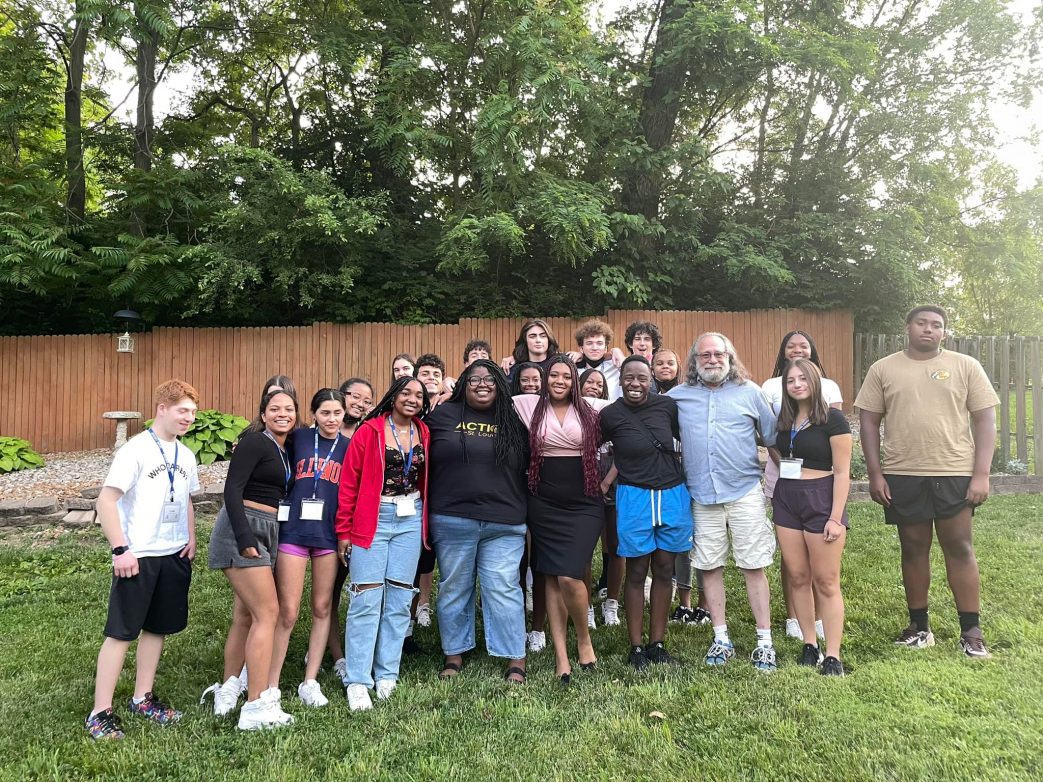The Program
Cultural Leadership seeks out middle and high school students to become advocates for social justice, equity, and just practices. This years class of 17 explored many strengths and oppressions of our communities through a lenses of Black and Jewish experiences. Tate Morgan and Hanan Nathan- Slarkey, rising seniors, participated in the program this year and shared their experiences and thoughts at a closing ceremony. You can read their pieces below.
Learn more about their mission and opportunities on their website: https://www.culturalleadership.org/
Hanan Nathan-Slarskey ’23
History matters because of how it impacts us today. The reason many students and adults are not particularly engaged in the study of history is in a fundamental issue in how it is taught. The definition of the word “history” is in need of alteration if we are to right the wrongs of our past and henceforth progress as a society. Instead of Oxfords short and limiting definition as the study of past events particularly in human affairs, an additional clause could change the world. History is the study of past events particularly in human affairs as means of understanding our present world. The most impactful and inspiring museums compared the oppressions of the past with their direct counterparts in our world today. The Legacy Museum, created by the Equal Justice Initiative, expertly interwove slavery with mass incarceration and lynching with the death penalty. The organization of information in the museum created an experience unlike any other museum I’d previously been to. The exhibit was chronological but at every step of the way, events of the past were used as explanations for situations visible today. This format is not consistent in the vast majority of museums in that it bends the commonly practiced method of historical education. A few days ago, we met with Dr. Robert Luckett, a professor of history at Jackson State University. Dr. Luckett delivered an incredibly educational and spirited presentation on the African American community in Jackson and it’s history. Every described event was explained with the lense of its continuance in today’s world. There have been few speakers who have been able to maintain our entire groups ardent attentiveness as well as Dr. Luckett. Equally important in correcting the historical status quo is understanding that all inhabitants of America are a part of the greater history of the United States. Joanne Bland, an activist who marched across the Edmund Pettus Bridge in 1965, explained to us that we regularly hear the terms Black history, Native American history, and Jewish history but we never hear the term White History. Because the norm in this country is White history, it belittles other integral parts of American history. To understand our identity as Americans and progress into a new right and just age, we must correct our understanding of history by teaching it in a way that both portrays our country as a reflection of its past and includes every event throughout this nation history not as it’s own separate subject but as United States history.
Tate Morgan ’23
My name is Tate, and I am a rising senior at Crossroads. Prior to this trip, l felt hopeless about all the injustices in the world. I noted that people have worked so hard for change, but laws and rights were slowly reverting back to old ways of thinking. I remember this past school year I had a debate with a teacher. He said essentially that he felt this country is making no change whatsoever. I argued and told him that I was part of a group that was making an effort to keep activist movements alive. I said this but did not feel any true connection to what I was saying. On our transformational journey, I didn’t start to feel the truth of what I had shared with the teacher until we had a late night discussion in DC. People in our village felt segregated and excluded by the group’s chosen housing arrangements. Although none of us did this intentionally, we all agreed that we separated ourselves because it is a common instinct to stay in groups that prioritize familiarity and comfort. It wasn’t until we had this discussion that I felt a commonality that the people around me cared about the issues as much as I did. After this conversation, I began to feel hopeful for the future because I know in order for the world to keep progressing, we need to lean into discomfort. Thank you.

